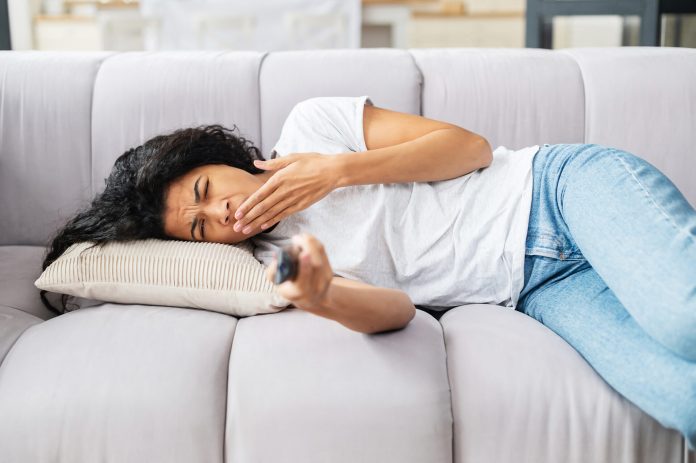These bad habits could exacerbate exhaustion
Too little sleep may not be the only reason your energy is flagging. Getting through your day will be much harder if you have these bad habits:
- You’re not drinking enough water. If you’re even a little bit dehydrated—as little as 2 percent of normal fluid loss—it zaps your energy levels. If you’re dehydrated, you have less blood volume, which makes the blood thicker. This makes your heart pump less efficiently, which, in turn, slows down the speed at which oxygen and nutrients reach your muscles and organs. What fluid needs are normal for you? Take your weight in pounds, divide in half and drink that number of ounces of fluid a day.
- You skip breakfast. Food fuels your body. While you sleep, your body continues using the fuel from dinner to keep your blood pumping. When you wake up in the morning, you need to replenish your fuel stores with breakfast. If you don’t eat breakfast, you’ll feel sluggish. Make sure your morning meal includes lean protein, whole grains and healthy fat. Good examples include eggs with two slices of whole-wheat toast and low-fat Greek yogurt; oatmeal and a small amount of peanut butter; or a fruit smoothie made with protein powder, low-fat milk and almond butter.
- You use caffeine to keep yourself charged. A cup of coffee first thing in the morning isn’t a problem. Studies show up to three daily cups of coffee is good for you. But using caffeine throughout the day as an energy booster can disrupt your sleep-wake cycle. A study published in the Journal of Clinical Sleep Medicine found that consuming caffeine even six hours before bedtime affects sleep, so have your last java jolt by mid-afternoon.
- You work through vacation. Your idea of relaxing includes responding to email while lounging on the beach. You’re avacation scrooge, and you run the risk of burnout. Taking a break means unplugging and allowing your mind and body to rejuvenate. When you return to work rested, you’ll be more effective.
- You don’t work out when you’re tired. It might seem backwards, but skipping your workout to save energy is actually counterproductive. A University of Georgia study found that sedentary but otherwise healthy adults who began exercising lightly three days a week for as little as 20 minutes at a time reported feeling less fatigued and more energized after six weeks. Here’s why: Regular exercise increases strength and endurance, which helps make your cardiovascular system work more efficiently.
- You can’t say no. We get it: You’re super human. But being a perpetual yes man comes with a price. If your sorority asks you to chair a committee or your supervisor wants to schedule a Sunday afternoon conference call, you don’t have to say yes. In fact, practice saying “no” out loud to yourself. It’ll make the word roll off your tongue easier next time someone demands some of your time.
- You’re not getting enough iron. If you’re iron deficient, you have less oxygen available to feed your cells and muscles, which can leave you feeling tired, irritable and unfocused. Keep your iron stores fully stocked with dark green leafy veggies, eggs, kidney beans, lean beef, nuts and peanut butter.
- You survive on junk food. Forego foods loaded with sugar and simple carbs, which can lead to repeated blood sugar spikes followed by sharp drops. This can cause fatigue. Keep blood sugar on an even keel with lean protein and whole grains. Smart choices: salmon and sweet potato, baked chicken and brown rice or chicken and fruit salad.
- You burn the midnight oil on weekends. Pulling late hours on Saturday night, and then sleeping in Sunday morning can make falling asleep Sunday night difficult. That means you start the new work week sleep deprived. Try to maintain your sleep schedule, even on weekends.
- You have that nightcap. A glass of wine sounds like a good way to unwind at the end of a long day, but it can easily backfire. Alcohol depresses the central nervous system, producing a sedative effect—at first. But as alcohol is metabolized, it can create an abrupt surge in your adrenaline system. Have your last alcoholic drink three to four hours before going to bed.
[Photo: Depositphotos]






